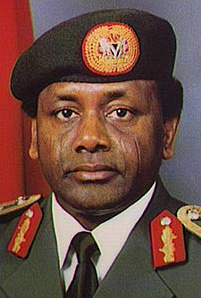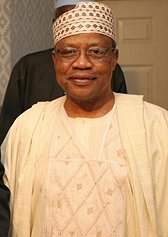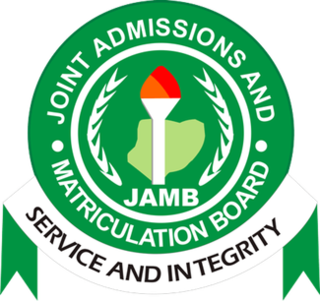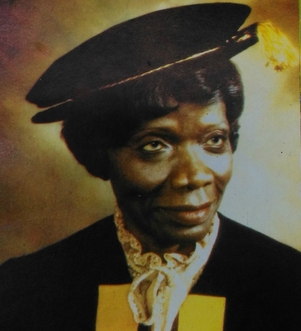Related Research Articles

The history of Nigeria can be traced to the earliest inhabitants whose remains date from at least 13,000 BC through early civilizations such as the Nok culture which began around 1500 BC. Numerous ancient African civilizations settled in the region that is known today as Nigeria,such as the Kingdom of Nri,the Benin Empire,and the Oyo Empire. Islam reached Nigeria through the Bornu Empire between and Hausa States around during the 11th century,while Christianity came to Nigeria in the 15th century through Augustinian and Capuchin monks from Portugal to the Kingdom of Warri.The Songhai Empire also occupied part of the region. From the 15th century,European slave traders arrived in the region to purchase enslaved Africans as part of the Atlantic slave trade,which started in the region of modern-day Nigeria;the first Nigerian port used by European slave traders was Badagry,a coastal harbour. Local merchants provided them with slaves,escalating conflicts among the ethnic groups in the region and disrupting older trade patterns through the Trans-Saharan route.

Akinwande Oluwole Babatunde Soyinka Hon. FRSL,known as Wole Soyinka,is a Nigerian playwright,novelist,poet,and essayist in the English language. He was awarded the 1986 Nobel Prize in Literature,for "in a wide cultural perspective and with poetic overtones fashioning the drama of existence",the first sub-Saharan African to be honoured in that category.

The Church of Nigeria is the Anglican church in Nigeria. It is the second-largest province in the Anglican Communion,as measured by baptised membership,after the Church of England. As of 2016 it gives its membership as "over 18 million",out of a total Nigerian population of 190 million. It is "effectively the largest province in the Communion." As measured by active membership,the Church of Nigeria has nearly 2 million active baptised members. According to a study published by Cambridge University Press in the Journal of Anglican Studies,there are between 4.94 and 11.74 million Anglicans in Nigeria. The Church of Nigeria is the largest Anglican province on the continent of Africa,accounting for 41.7% of Anglicans in Sub-Saharan Africa,and is "probably the first [largest within the Anglican Communion] in terms of active members."
Chief Emeka Anyaoku,GCON GCVO,CFR,CON is a Nigerian diplomat of Igbo descent. He was the third Commonwealth Secretary-General. Born in Obosi,Anyaoku was educated at Merchants of Light School,Oba,and attended the University College of Ibadan,then a college of the University of London,from which he obtained an honours degree in Classics as a College Scholar. Aside from his international career,Chief Anyaoku continues to fulfill the duties of his office as Ichie Adazie of Obosi,a traditional Ndichie chieftainship.

Chief Olusegun Matthew Okikiola Ogunboye Aremu Obasanjo is a Nigerian retired military officer and statesman who served as Nigeria's head of state from 1976 to 1979 and later as its president from 1999 to 2007. Ideologically a Nigerian nationalist,he was a member of the Peoples Democratic Party (PDP) from 1998 to 2015,and since 2018.

Sani Abacha was a Nigerian military officer and politician who ruled as the military head of state after seizing power in 1993 until his death in 1998. Abacha's seizure of power was the last successful coup d'état in Nigerian military history.

Ibrahim Badamasi Babangida is a Nigerian retired general and statesman who served as military president of Nigeria from 1985 until his resignation in 1993. He rose through the ranks to serve from 1984 to 1985 as Chief of Army Staff;going on to orchestrate his seizure of power in a coup d'état against Muhammadu Buhari.

Chief Ernest Adegunle Oladeinde Shonekan was a Nigerian lawyer and statesman who served as the interim head of state of Nigeria from 26 August 1993 to 17 November 1993. He was titled Abese of Egbaland from 1981.
Olusegun Kokumo Agagu was a Nigerian politician who was governor of Ondo State in Nigeria from 29 May 2003 until February 2009,when a court voided his re-election as governor on account of electoral irregularities. He was replaced as governor by Olusegun Mimiko,his political rival,based on a court injunction. He was a member of the then ruling Peoples Democratic Party (PDP).

The West African Examinations Council (WAEC) is an examination board established by law to determine the examinations required in the public interest in the English-speaking West African countries,to conduct the examinations and to award certificates comparable to those of equivalent examining authorities internationally. Established in 1952,the council has contributed to education in Anglophone countries of West Africa,with the number of examinations they have coordinated,and certificates they have issued. They also formed an endowment fund,to contribute to education in West Africa,through lectures and aid to those who cannot afford education. Since established it continues to be one of the biggest and most globally recognized exams in West Africa.

Florence Nwanzuruahu Nkiru Nwapa,was a Nigerian author who has been called the mother of modern African Literature. She was the forerunner to a generation of African women writers,and the first African woman novelist to be published in the English language in Britain. She achieved international recognition with her first novel Efuru, published in 1966 by Heinemann Educational Books. While never considering herself a feminist,she was best known for recreating life and traditions from an Igbo woman's viewpoint.

The Joint Admissions and Matriculation Board (JAMB) is a Nigerian entrance examination board for tertiary-level institutions. The board conducts entrance Unified Tertiary Matriculation Examination for prospective undergraduates into Nigerian universities. The board is also charged with the responsibility to administer similar examinations for applicants to Nigerian public and private monotechnics,polytechnics,and colleges of educations. All of these candidates must have obtained the West Africa Senior School Certificate (WASSCE) conducted yearly by the West African Examinations Council,WAEC,or its equivalent,National Examination Council (Nigeria),Senior School Certificate Examination,NECO SSCE.

Vincent Chukwuemeka Ike OFR,NNOM was a Nigerian monarch,academic and writer known for a mixture of lampoon,humour and satire. He owed a little bit of his style to his Igbo cultural upbringing. He studied history,English and Religious Studies at the University of Ibadan and earned a master's degree at Stanford University. Among many of the first generation of Nigerian writers,he was popular as the author of Expo '77,a critical look at academic examination abuses in West Africa. Ike was a former registrar of the West African Examinations Council (WAEC).

The Third Republic was the planned republican government of Nigeria in 1992 which was to be governed by the Third Republican constitution. In the Third Republic,there were democratically elected state governors and state assemblies and a democratically elected federal legislature. The republic was however not fully democratic as there was no democratically elected civilian president. The then military president Ibrahim Babangida's supposed transition eventually turned out to be a ploy to keep executive powers and grant the National Assembly limited legislative powers. Hence all laws passed by the Senate and House of Representatives will have to pass the National Defence and Security Council of Nigeria and finally approved by the President. So while Babangida changed the usual style adopted by preceding military leaders from Head of State to President,he will continue to postpone presidential elections and eventually annul the ultimate one held on 12 June 1993. the Third Republic can thus be described as half military and half civilian.
Aliyu Mohammed Gusau is a Nigerian general and statesman. He has held several high level national security,military and intelligence offices,and has participated in several military coups,playing a central role in founding the Fourth Nigerian Republic.

Presidential elections were held in Nigeria on 12 June 1993,the first since the 1983 military coup ended the country's Second Republic. The elections was the outcome of a transitional process to civilian rule spearheaded by the military ruler,Ibrahim Badamasi Babangida. The unofficial result of the election –though not declared by the National Electoral Commission (NEC) –indicated a victory for Moshood Kashimawo Olawale Abiola of the Social Democratic Party (SDP),who defeated Bashir Tofa of the National Republican Convention (NRC). The winner of the election was thus never declared as the elections were annulled by Babangida,citing electoral irregularities. The annulment led to protests and political unrest,including the resignation of IBB and a weak interim civilian government,and culminated in the continuation of military rule in the country with Sani Abacha ascending to power as the military head of state via a bloodless coup later in the year.

The Interim National Government was the government of Nigeria following the crisis of the Third Republic after General Ibrahim Babangida handed power over to Ernest Shonekan as interim Head of State on 27 August 1993. The largely powerless government was dissolved when General Sani Abacha seized power on 17 November 1993.
Lola MargaretListen is a Nigerian actress,film producer and film director. Lola lost her parents in 1999 and lived all her childhood life with her aunt. Her career came into the limelight after she starred as the lead character in the movie Bisola Alanu.

Chief Kofoworola Abeni Pratt Hon. FRCN was a Nigerian nurse who was one of the first notable black nurses to work in Britain's National Health Service. She subsequently became vice-president of the International Council of Nurses and the first black Chief Nursing Officer of Nigeria,working in the Federal Ministry of Health.

The 1993 Nigerian coup d'état was a bloodless military coup which took place in Nigeria on 17 November 1993 when the Armed Forces,headed by Defence Minister General Sani Abacha,forced Interim President Chief Ernest Shonekan to resign. Shonekan assumed the interim presidency on 26 August 1993,succeeding General Ibrahim Babangida as head of state,in the aftermath of Babangida's annulment of the 12 June 1993 presidential election. In a nationwide broadcast following the coup,Abacha cited the stagnant nature of Shonekan's government,and his inability to manage the democratic process in the country as a cause of his resignation. In September 1994,Abacha issued a decree that placed his government above the jurisdiction of the courts,effectively giving him absolute power. Another decree gave him the right to detain anyone for up to three months.
References
- 1 2 3 4 5 6 7 8 9 10 11 12 13 14 15 16 17 18 "Abacha, Abiola And My Husband - Mrs. Shonekan". This Day . AllAfrica.com. 29 October 2000. Archived from the original on 9 November 2000. Retrieved 8 December 2017.
- 1 2 3 4 "Board of Trustees: Chief Mrs. Margaret O. Shonekan". Chrisland University . 29 October 2000. Archived from the original on 2 July 2017. Retrieved 8 December 2017.
- 1 2 Okon-Ekong, Nseobong (2 October 2010). "Nigeria: First Ladies - Colourful Brilliance, Gaudy Rays". This Day . AllAfrica.com. Archived from the original on 23 April 2012. Retrieved 8 December 2017.